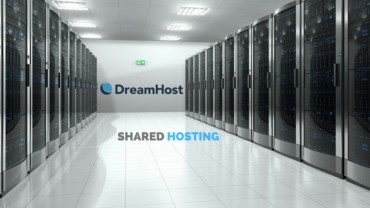Easy Guide To Choose Right Cloud Services For Your Business

As the technology is advancing at a great pace, we need to catch up to it if we want to be the winner of the race in this competitive world. In fact, one of the most revolutionary services known as cloud computing services is still an alien concept to many. With rising popularity, most businesses are turning towards cloud services to provide them on demand services via Internet from cloud computing provider’s servers. Many companies have cited that they have moved their business to cloud because it helps in increasing efficacy, improving cash flow and allows its employees to work from anywhere.
Cloud computing plays a vital role in raising the level of advancement of your business operations and hence, not incorporating such an exceptional technology can have retrogressive effects on the overall working structure of your company. The topic of cloud computing may be confusing and its various terminologies might not be easily comprehensible. Since cloud computing can alleviate the overall working pattern of your business operations, then knowing at least the basic insights is essential for investing in right kinds of services.
What Is Cloud Computing?
Cloud computing services means easy and scalable applications, resources and services provided to end users via Internet though cloud computing provider’s servers instead of being provided from the company’s servers placed on the premises. Cloud services can be altered as per the demand of the users as the service provider supplies the essential hardware and software without the company requiring to deploy its own resources or recruit a dedicated IT department to manage its functioning.
It was in late 1990s that Marc Benioff introduced the concept of Software as a Service (SaaS) that brought a 360 degree change in the working structure of companies as it became popular for saving huge costs while providing businesses the required flexibility. In case a company has expanded its operations and requires greater bandwidth, then cloud services can instantly meet this demand due to the vast capacity of its remote servers, thus saving the company from incurring additional expenditure on infrastructure. Moreover, in comparison to businesses who rely on their on-site servers, retrieving data from cloud servers are least complex while implementing disaster recovery plans.
Also, cloud computing service providers take care of all the maintenance and updating of the servers while ensuring that no capital expenditure is incurred on the part of the companies. Cloud computing services are designed to allow collaboration of numerous employees to sync up and work on documents and shared apps, simultaneously allowing employees to work from any location as long as they have Internet.
With lots of ads popping up on Internet in relation to the variety of cloud services offered, you may find yourself in jeopardy if you are not familiar with the types of cloud services available. It is a fact that most of the cloud based business applications are referred as SaaS but there is an option to purchase the supporting infrastructure, that is known as IaaS (Infrastructure as a Service). Both of these cloud services are offered in the form of public, private and hybrid cloud. Now for deciding which of these are suitable for your business, having an in-depth understanding about these is pertinent.
The Public Cloud:
One of the most demanded cloud services is the public cloud as it is a viable option for the start ups. It is a low cost option because you share the hardware, business application software, operating system and data centre with all of the other users with whom the servers are common. It saves your capital expenditure that needs to be incurred on the deployment of IT services. It is important to save the whopping IT costs by moving your business to the public cloud as you get the opportunity to utilise their infrastructure and leading edge services. Many companies such as Google, Amazon, Microsoft, Salesforce, etc have devised flexible services to let small enterprises or start ups to explore the new avenues of technological advancements in software and services and thereby, give a stiff competition to the established companies.
The Private Cloud:
In comparison to public cloud, private cloud services are expensive. The reason for this high side of cost is the benefit over public cloud in terms of security and performance. The best thing about private cloud is that you won’t be sharing anything with any other user except for the infrastructure. Protection to the data and business applications is provided via its own virtual layer. This virtual layer is basically a software that allows you to comfortably use the shared hardware while ensuring safety of data.
In case one of your applications crash in the public cloud, then all the users accessing through the same cloud will experience a disruption in service too. On the contrary, the users of private cloud will not face such service stoppage even if one or more users’ application turns down. This is because, in private cloud, each customer can have their customised security system that maintains strictness in accessing applications and data.
When you get flexibility, security added with great performance, then it is obvious that private cloud will become the first choice of every enterprise that is ready to pay more to get those exclusive services. Despite being costlier than the public cloud, many businesses are opting them for easy management of their complex workloads along with confidential business data such as financial analysis, taxation data and policies, asset management database, etc.
Recommended: Difference Between Virtual Private Server and Private Cloud
The Hybrid Cloud:
It is very difficult to decide the superior option between public and private cloud as one is inexpensive while other ensures high degree of security. Every other feature of public cloud has a point of opposition with private cloud and vice versa. Many dignified people in the tech savvy world are of the opinion that when business applications and database are unique for every business enterprise, then there must be a provision to combine best of the features of both public and private cloud in the form of a hybrid cloud.
This however, depends upon the organization that emerges with such a need. They must contact such vendors and partners to assist them in developing such a hybrid model that engulfs the required attributes of the public and private cloud. The business must deploy an IT team to coordinate with the development of this hybrid model and provide their input as to which of the applications need to be allocated in which cloud.



